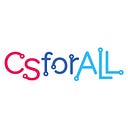What are the observations and potential implications of shifting PD to a virtual environment in a growing computer science teacher population.

After completing the Hindsight 2020 study, which captured lessons learned from the rapid shift to online Computer Science (CS) Professional Development (PD) in 2020 (a practitioner’s guidebook was published in June 2021), we wondered, what happened during the academic year after the switch to remote PD? What about summer 2021 PD?. Below are our observations and potential implications of the shifting state of PD based on follow-up interviews in Fall 2021.
Four Ways PD is Becoming More Customized
Providers are changing the way they offer PD in response to a virtual environment in a growing CS teacher population.
- On-demand or just-in-time PD is needed. Teachers are looking for PD to support them when implementing particular units or modules in the classroom. Several programs are recording short instructional videos for teachers to use as they need them, either to refresh content or learn new material. How this material is stored, shared and accessed as well as how to determine which materials are of high quality is an open question.
- PD is increasingly adaptive to the experience level of the teachers. By creating multiple tracks within a PD program to accommodate teachers with different experience and skill levels, teachers can make the most of their time commitment.. Ensuring teachers are appropriately supported will require creating and utilizing assessments.
- PD providers are prioritizing offerings based on enrollment. Some programs are offering a variety of PD options, but only providing specific opportunities when they reach critical mass, rather than offering all PD opportunities at once.
- Virtual PD has shifted the business model. Providers that historically cultivate locally-offered PD through partners (for example, a regional hub or a district) are now offering PD through the PD provider’s main site. In some cases, this is because the local partners are no longer reaching a critical mass of teachers to warrant running the PD, and in others it is to reduce the logistical burdens of running the PD themselves.
The PD providers who participated in our study are deeply committed to ensuring that their materials are not only technically rigorous but aim to introduce and prepare teachers to use principles of culturally responsive pedagogy in their classrooms. If PD offerings become increasingly centralized and abstracted from local context, it is possible that the offerings may be less responsive to unique classroom contexts in which the teachers will provide students with meaningful CS education.
Teacher Engagement in PD is Down
Providers reported fewer PD participants during summer 2021, and those attending PD seemed less engaged. Providers universally cited teacher burnout and fatigue. Summer school and distinct PD obligations also reduced participation in CS PD.
PD Assessments are Even More Essential
Our study found that most PD providers conduct minimal evaluation of their PD, with only a few providers collecting either self-report or assessed pedagogical content knowledge, affective orientation toward CS teaching and learning, or the overall impact of the PD experience on student learning (McGill et al., in press). Generating such assessments offer providers with tools for identifying the PD needs of the teachers before or during the PD and for understanding the impact of their programming.
PD-Based Teacher Communities are Becoming Regional/National in Focus, and Less Localized
Among the larger PD providers for whom PD is the organizational mission (as opposed to grant-funded PD which tends to be more localized and targeted) on-going PD prior to 2020 tended to follow a cohort model (continuing PD with the same group of teachers that participated in the summer PD session). We are now observing that teachers are no longer being supported as a cohort, rather they are joining communities for all teachers that went through the content-specific PD or all teachers connected to the PD organization.
As CS teacher communities scale up, how do we ensure teachers feel connected and supported? Many of these communities are voluntary and self-facilitated. Teachers, particularly novice CS teachers, may need a more personal connection and support. There may also be different facilitation needs as PD communities grow larger and geographically dispersed.
Conclusion
The CS PD field is changing rapidly, accelerated in part by the COVID-19 pandemic. Shifts toward differentiated, on-demand PD, as well as rise in nationally-focused teacher communities will have implications for how PD is designed, delivered, and assessed moving forward. Just as teachers have forums for improving their craft, the PD provider community may also benefit from a community forum to exchange successes and challenges.
A PD provider community could accelerate a focus on equity — in PD content as well as PD design and delivery. Equity for reaching teachers may include ensuring that they have access to appropriate resources and devices, as well as meeting teachers where they are through a customized PD experience. A PD provider community could also support members as they develop and test new assessment approaches.
Further, a PD provider community would allow providers to discuss potential tradeoffs associated with creating more standalone resources. Providing teachers with just-in-time support, model lessons and assessment materials is important, and yet as materials become more easily available, we do not want to risk losing facilitated PD. Static materials should be available as supplemental resources for teachers who have already received high quality CS PD that prepares them for the pedagogical content knowledge and equity-based practices.
About the Authors: Rebecca Zarch (Director) and Stacey Sexton (Lead evaluator) are from SageFox Consulting Group. All of our research efforts are based on values of collaboration, transparency and meaningful contribution to the education community. This blog post was developed as part of the Hindsight 2020 (2039175) research project designed to bring lessons learned from remote CS PD into future PD efforts which we co-lead with with Monica McGill (CSEdResearch.org), Melisa Rasberry (formerly AIR and now at the Friday Institute), Christine Ong from CRESST at UCLA, and Shelly Hollis of MSU.
